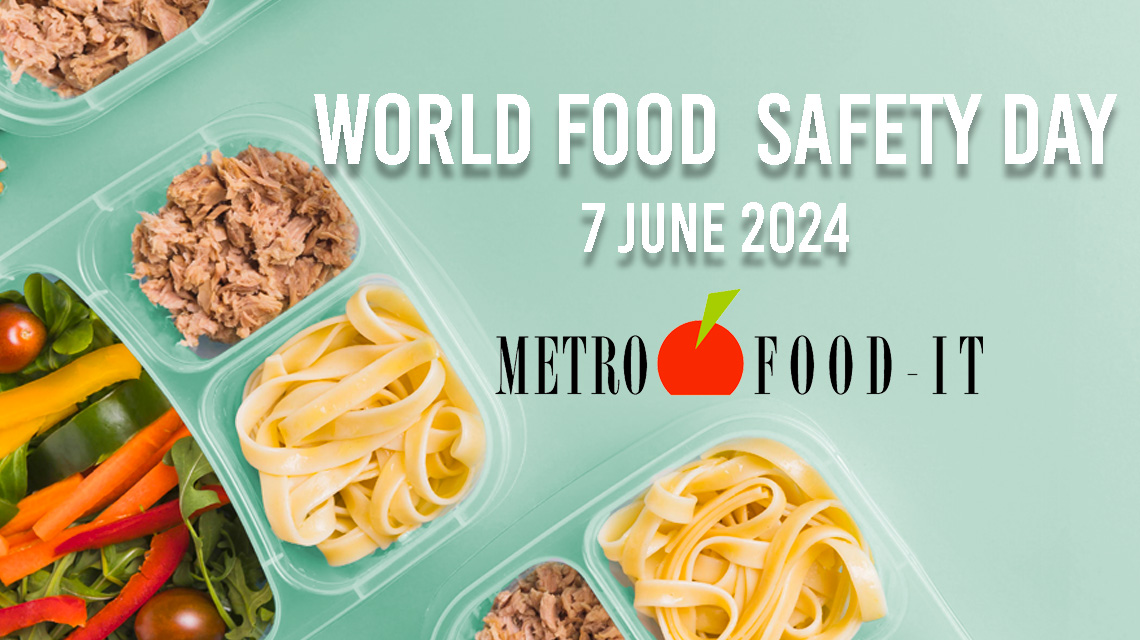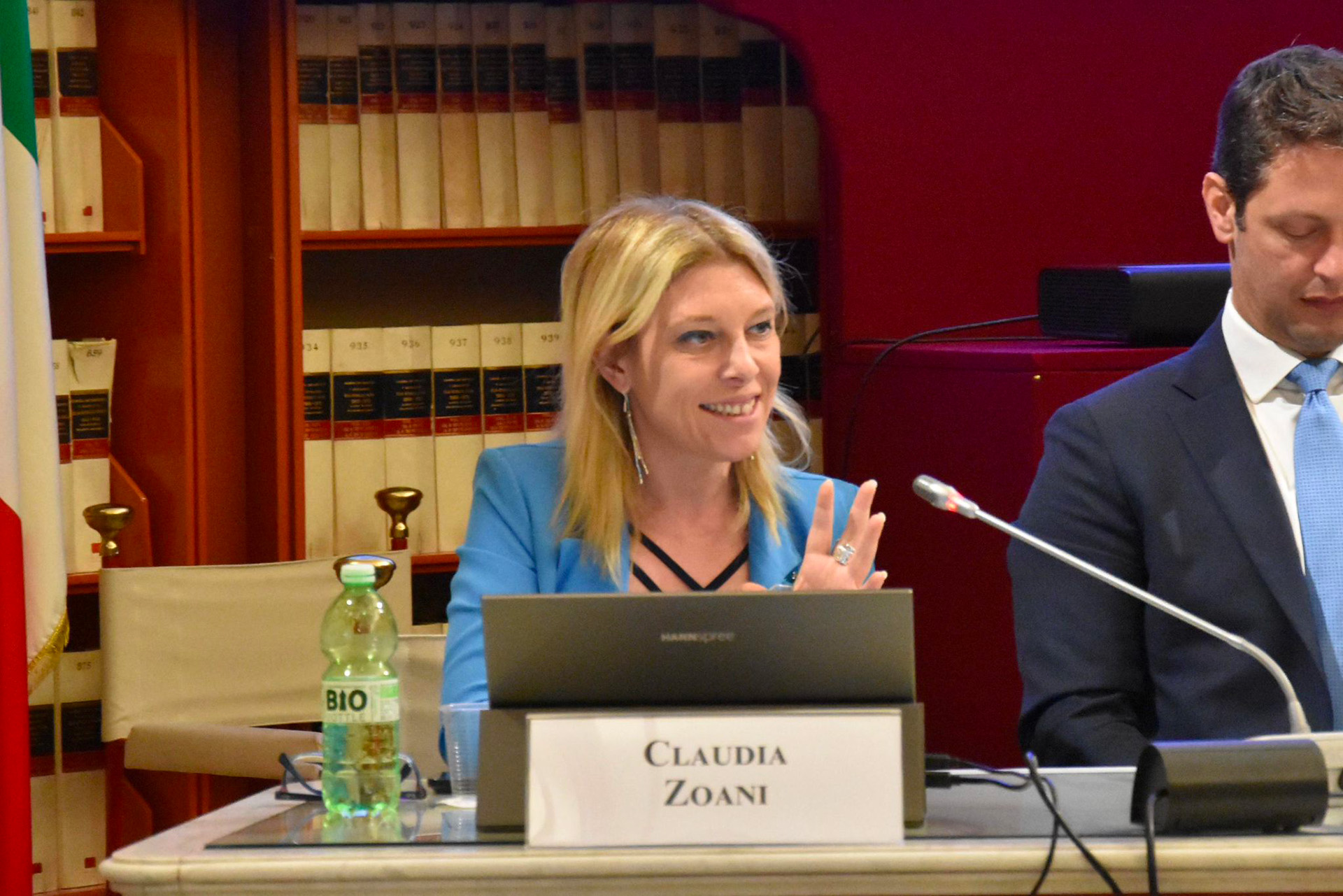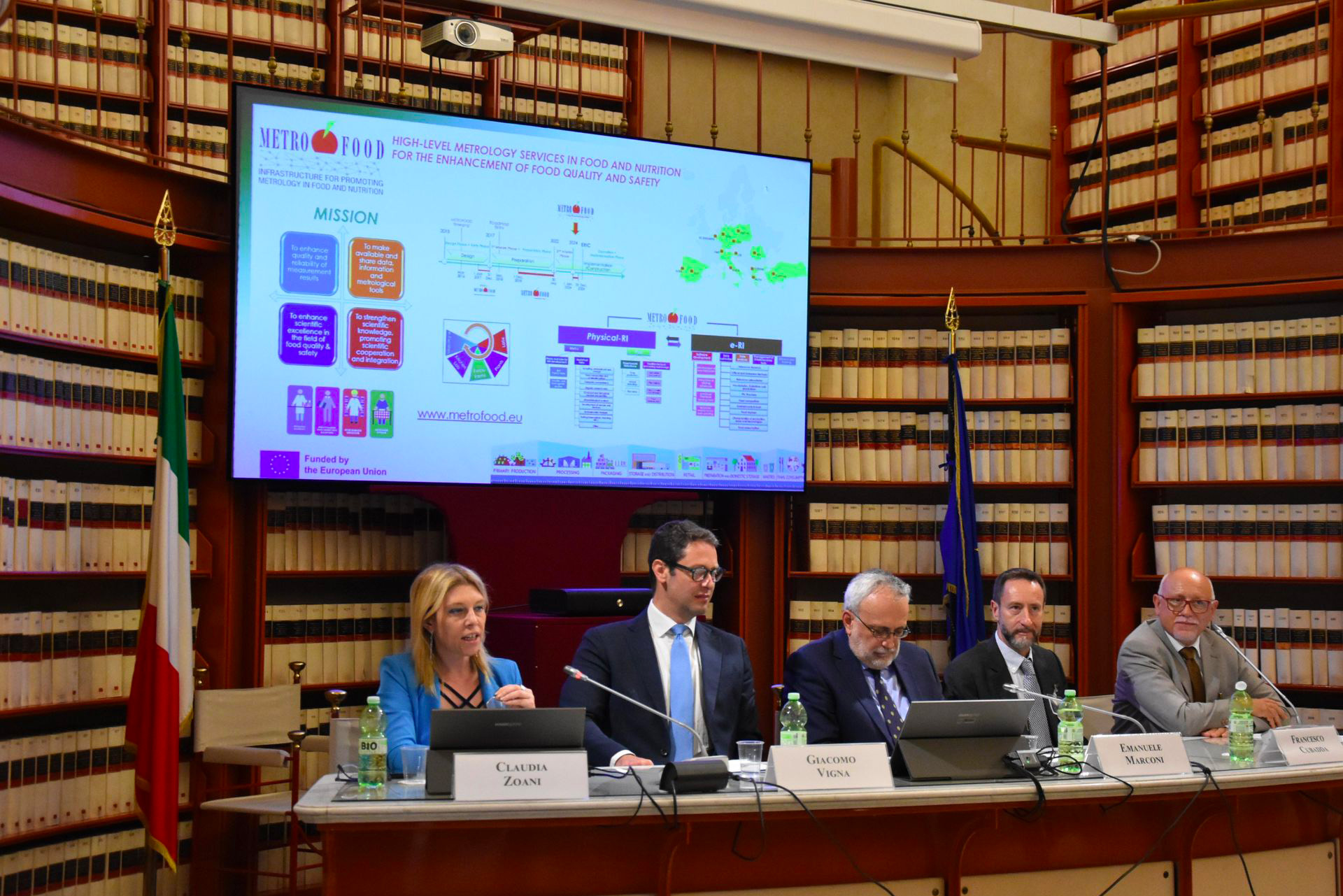Strengthening of the Italian Research Infrastructure for Metrology and Open Access Data in support to the Agrifood

June 7th is World Food Safety Day: METROFOOD-IT leads at the CL.A.N. conference held at the Chamber of Deputies
Today, June 7th, World Food Safety Day is celebrated globally, established by the United Nations General Assembly. This significant day was preceded in Italy by the event 'Food Safety is Science,' promoted and organized at the Chamber of Deputies by the National Agrifood Cluster CL.A.N. The event aimed to raise awareness and highlight the importance of food safety for citizens, showcasing methodological advancements, processes, and future scenarios in food safety. Claudia Zoani, coordinator of METROFOOD-IT, also participated in the event.
The Piepoli Institute Research
During the conference, after the opening remarks by the Minister of Agriculture, Food Sovereignty, and Forestry, Francesco Lollobrigida, a survey conducted by the Piepoli Institute was presented. The survey questioned Italian citizens about their trust in science, technological progress, and the food industry, and the perceived risks in achieving food safety. The results are positive: 60% of the Italians interviewed trust scientific and technological progress, with the largest segment being young people aged 18 to 34, representing 75% of the aggregate data. The sample also favorably views the role of the food industry, with a trust level of 71%. Furthermore, scientific research in agrifood is appreciated and perceived positively: 35% believe innovation leads to better food preservation, 32% see increased productivity, and 28% note reduced food waste. However, perceived risks include the potential loss of authenticity of certain products.
The survey also explored perceived food safety risks: respondents' concerns span all three areas of food risks (biological, chemical, and physical), including antibiotics or hormones, improper or expired food storage, and the presence of GMOs (20%). Lower figures were noted for the presence of foreign bodies (microplastics) at 18%; food from uncontrolled countries at 17%, and virus or bacteria presence at 16%. These results were positively commented on by Paolo Mascarino, President of the National Agrifood Cluster CL.A.N. and Federalimentare: 'The clear takeaway from today’s event is that for Italians, science, technology, and innovation are the solutions to counteract food safety risks. This is reassuring as our role in research and innovation is perceived as a mark of quality and trust in the sector, which is essential for providing safe, good, and well-made food to consumers.'
The Role of METROFOOD-IT
During the event, Claudia Zoani, coordinator of METROFOOD-IT, summarized the consortium's objectives within its connection to the European infrastructure METROFOOD-RI. She emphasized the need for research to not work in isolation but rather in close collaboration with all other agrifood sector stakeholders, starting with businesses. “The development of sustainable agrifood products and the promotion of healthy diets depend on food safety. Scientific research plays a crucial role in enhancing our knowledge of food safety: this is where METROFOOD.IT’s activities fit in, as a national research infrastructure supporting agrifood systems, funded under the PNRR and coordinated by ENEA. It aims to bridge research and innovation, industrial actors, and consumers by implementing technology transfer actions to drive knowledge and skill development supporting agrifood. All this with an international perspective: the Italian project is part of the European Research Infrastructure METROFOOD-RI, included in the ESFRI Roadmap for the Health and Food domain and coordinated by Italy,” Zoani noted.
The Importance of Food Safety
Among the morning's speakers was Giacomo Vigna from the General Directorate for Industrial Policy, Reconversion, and Industrial Crisis, Innovation, SMEs, and Made in Italy at the Ministry of Enterprises and Made in Italy. He highlighted that “Food safety, in its various forms, also touches the food industry, which plays a fundamental role in this context. It is an industry that, thanks to science, can extend the shelf life of products, ensuring domestic supply and exports. Mimit enthusiastically supports the entire agrifood industry and pays great attention to consumers.”
Professor Emanuele Marconi, President of the CTS National Agrifood Cluster CL.A.N and Director of CREA, focused his speech on the risk of fake news, which often targets processed foods. Conversely, he argued, “The processes applied to food ensure safety, availability, and access to food, nutritional adequacy, sensory acceptability, and waste reduction in a context of circular economy and environmental, ethical, social, and cultural sustainability. Research and technological innovation in the food sector are aimed at continuously improving food safety and quality by reducing thermal and mechanical damage, chemical and biological contamination, and the use of chemical agents and technological additives.”
Francesco Cubadda, Coordinator of the LNR Nanomaterials and EFSA expert at the Istituto Superiore di Sanità, emphasized the EU's significant focus on food safety, particularly through the work of the European Food Safety Authority (EFSA), established after the crises of the 1990s. “Ensuring food safety in a constantly changing global and productive context is a challenging task. Europe currently enjoys the highest standards in food safety: maintaining this in the future requires commitment on many fronts. Continuous methodological advancements in risk assessment for food safety demonstrate that the tools are up to the challenge.”
Finally, Giorgio Donegani, Spokesperson for the National Council of the Order of Food Technologists, stated: “What emerges as extremely positive is the structural dimension of the approach to food safety in our country. This dimension allows scientific research, the most advanced control methodologies, and innovative production and preservation techniques to reach their full potential, thanks to effective coordination and institutional support, to offer maximum protection for consumers and the excellence of our entire agrifood system.”







